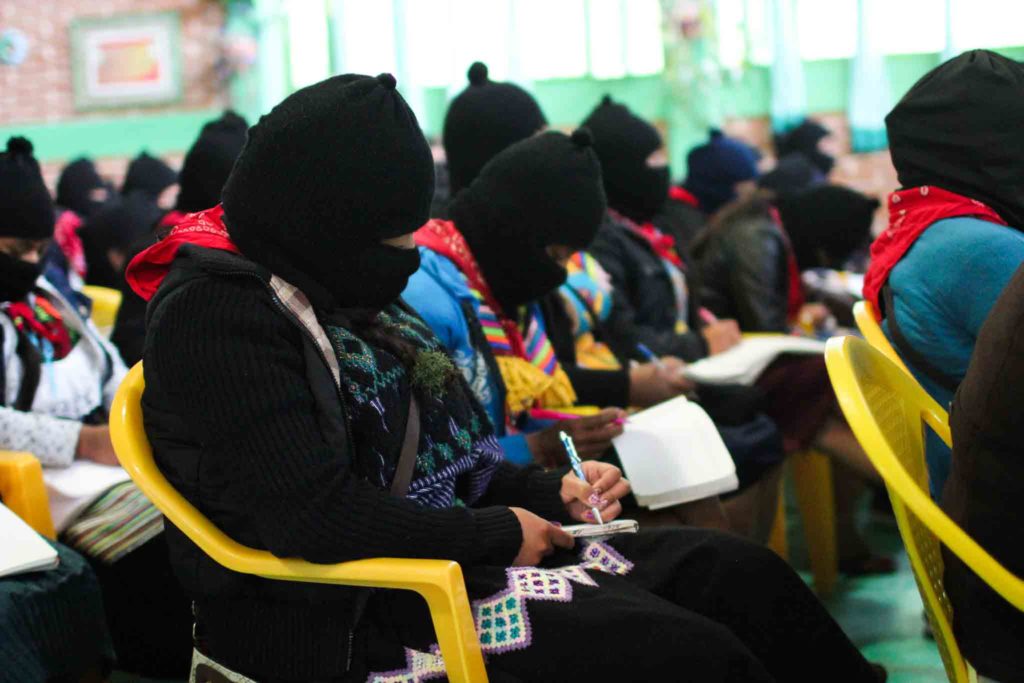by DAVID MEEK
 Zapatista women taking notes at ConCiencias PHOTO/David Meek
Zapatista women taking notes at ConCiencias PHOTO/David Meek
Below images of Mexican revolutionary Emiliano Zapata, and a many-headed hydra consuming humanity, sit two groups. To the right, facing a stage, are approximately 200 delegates of the Zapatista National Liberation Army (EZLN), seated as a homogenous block. Wearing black ski masks, they furiously take notes. To the left, 300 scientists and observers from throughout the world are seated.
With a tiny pink ribbon pinned to her mask, Julía, a Zapatista delegate from Oventic, Chiapas, takes the microphone: “The rivers are drying up. We know that the people before had a way of planting their crops, but now it doesn’t rain like it’s expected to. Now, there are epidemics that weren’t common before, like cancer and diabetes…”
Julía is unequivocal about the linkages between science and capitalism in perpetuating this crisis. “Medicines just create dependence on the pharmaceutical industry,” she tells us. But Julía is also clear that science can function as a tool of resistance, if reimagined from the grassroots: “Brother and sister scientists, we ask you, according to your studies: why does all this happen? And who is responsible? We have come to hear you and bring this knowledge to the peoples, to our peoples.”
Over four days, from December 27th-30th 2017, the second iteration of ConCiencias, a conference creating dialogue between the Zapatista’s and leading left-wing scientists from throughout the world, took place at CIDECI—Universidad de la Tierra, located on the outskirts of San Cristobal de Las Casas—a city in Chiapas which has long been associated with the Zapatista’s struggle. Although it might seem tangential, the struggle to decolonize knowledge is part and parcel of the Zapatista’s broader project of resisting indigenous genocide, neoliberal capitalism, and political repression.
Las ConCiencias, the title of the conference, brings together the Spanish words for science and awareness. The moniker pinpoints the conference’s dual purpose. First, the Zapatistas convened the meeting to critically explore the ways in which science has historically been a social endeavor largely devoid of consciousness, a project in the service of capital, an endeavor that contributes to the marginalization of indigenous peoples throughout the world. Second, the conference is a space of dialogue to explore the counter-hegemonic potential of science; how can its power be harnessed to identify the cracks in the wall of capitalism, and expand upon them, leading to its dissolution and the resurgent sovereignty of indigenous peoples.
Toward Freedom for more
